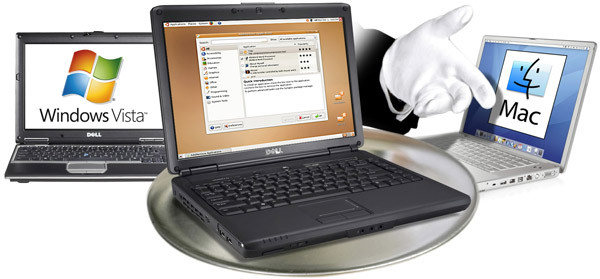I missed this great
Larry Magid article in the
New York Times a couple of weeks ago, on how more barriers are falling for GNU/Linux, and tells of Linux's new place of prominence, despite its still small share of the market.
 LINUX runs the Google servers that manage billions of searches each day. It also runs the TiVo digital video recorder, the Motorola Razr cellphone and countless other electronic devices. But why would anyone want to use Linux, an open-source operating system, to run a PC? “For a lot of people,” said Jim Zemlin, executive director of the Linux Foundation, “Linux is a political idea — an idea of freedom. They don’t want to be tied to Microsoft or Apple. They want choice. To them it’s a greater cause.” That’s not the most compelling reason for consumers. There is the price: Linux is free, or nearly so. Unlike Windows from Microsoft and OS X from Apple, Linux is not owned, updated or controlled by a single company. Thousands of developers around the world work on Linux, making improvements and issuing new versions several times a year. Because the core Linux software is open source, these developers have the right — some would say responsibility — to borrow from one another’s work, constantly looking for enhancements.
LINUX runs the Google servers that manage billions of searches each day. It also runs the TiVo digital video recorder, the Motorola Razr cellphone and countless other electronic devices. But why would anyone want to use Linux, an open-source operating system, to run a PC? “For a lot of people,” said Jim Zemlin, executive director of the Linux Foundation, “Linux is a political idea — an idea of freedom. They don’t want to be tied to Microsoft or Apple. They want choice. To them it’s a greater cause.” That’s not the most compelling reason for consumers. There is the price: Linux is free, or nearly so. Unlike Windows from Microsoft and OS X from Apple, Linux is not owned, updated or controlled by a single company. Thousands of developers around the world work on Linux, making improvements and issuing new versions several times a year. Because the core Linux software is open source, these developers have the right — some would say responsibility — to borrow from one another’s work, constantly looking for enhancements.
But Linux has always had a reputation of being difficult to install and daunting to use. Most of the popular Windows and Macintosh programs cannot be used on it, and hand-holding — not that you get that much of it with Windows — is rare. But those reasons for rejecting Linux are disappearing..... Linus Torvalds, the creator of Linux, acknowledged that "there are a few dark spots but they really tend to be fairly rare, and in practice quite often the biggest hurdle is simply that Linux mostly doesn’t come preinstalled and set up for you." 